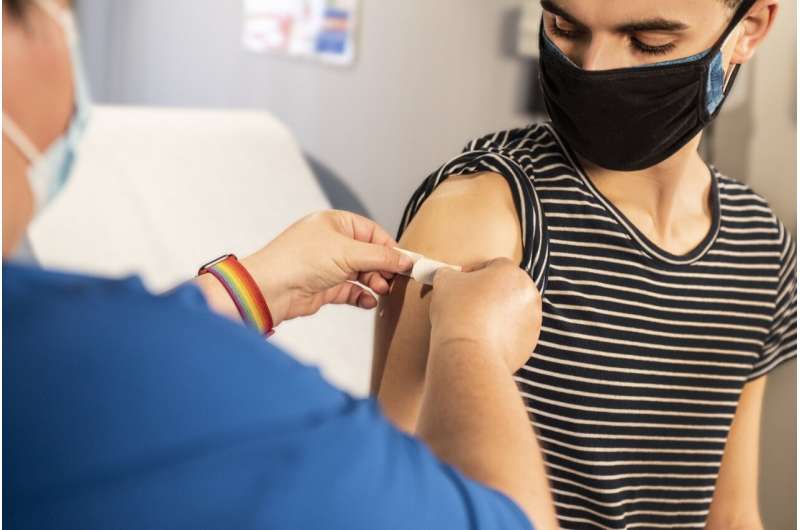

Children and adolescents rarely have a severe COVID-19 disease course, and the vast majority have few or no symptoms. At a time with high transmission in this age group, the NIPH believes that it is right to also offer vaccines to this group so that they are protected against a severe disease course.
“Transmission among children and adolescents is increasing, and adolescents have many social contacts. When many are infected, a few more will also be at risk of being admitted to hospital. Some may also develop the rare and serious complication MISC, which is an inflammatory condition that can occur about 2–6 weeks after COVID-19 disease. Therefore, we have recommended to the government that the coronavirus immunization program is expanded so that 12-15-year-olds can be offered a vaccine,” says Camilla Stoltenberg, director-general of the Norwegian Institute of Public Health.
To date, just over 1,300 young people in the 2006–2009 cohorts have been vaccinated. This is a small group of adolescents who have been recommended vaccination because they have serious underlying diseases that can increase their risk of a severe COVID-19 disease course and admission to hospital.
Single dose
The coronavirus vaccine offered is approved from 12 years and up. The vaccine will be offered to the 2006–2008 cohorts, as well as everyone in the 2009 cohort once they have turned 12 years old.
Vaccination will consist of one dose in the first instance. Adolescents aged 12 to 15 years generally have a very good effect from immunization.
“One dose provides good protection against a severe disease course, and the protection will probably be better among adolescents at this age than for older age groups,” says Stoltenberg.
She explains that the NIPH will make new assessments with updated knowledge about side effects, disease development and the overall situation before a recommendation is given for dose two for this age group.
A rare side effect in the form of inflammation of the heart, called myocarditis, has been reported after using mRNA vaccines, especially in younger people. The side effect mainly occurs after the second dose and is temporary, so most people recover within a month.
“We consider that the offer of one dose provides the clearest benefit for the individual adolescent when the benefit is weighed against possible disadvantages of the vaccine. The second dose will be considered when there is more knowledge from other countries that have come further in the vaccination of this age group,” says Stoltenberg.
The greatest transmission-limiting effect of the vaccines is achieved when two vaccine doses are given. The NIPH has assessed that for this age group, which to a lesser extent than adults and older adolescents has contributed to transmission, the individual considerations of offering vaccination is more important than the benefit to society of limiting transmission. However, this may be reconsidered if the infection situation changes in the future.
Arrangements for the 2006–2008 cohort can begin as soon as the municipalities have the capacity for this. The municipalities must also establish systems to be able to invite children born in 2009 to vaccination when they have reached the age of 12 years. This can take a little longer to organize, as the systems in places are often based on year group and not date of birth.
The Norwegian Institute of Public Health recommends that the vaccine Comirnaty from BioNTech / Pfizer should be used because there is greater experience with the vaccine in this age group.,
Tailored information
Parents are responsible for health decisions for children under the age of 16, but children and adolescents must be consulted about decisions concerning their health.
“We want children to receive tailored information and are now working to develop information material that will be available within a few days on our website fhi.no,” says Stoltenberg.
Source: Read Full Article